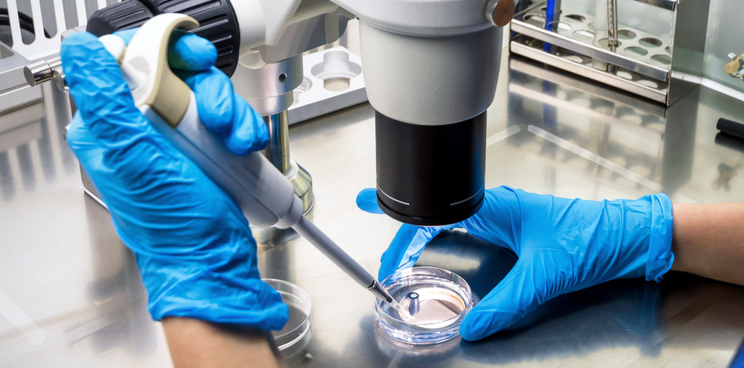Newsletter Signup - Under Article / In Page
"*" indicates required fields
Swiss company Lunaphore Technologies has raised €21.5M (CHF 23M) in Series C funding to expand the automation of cancer research and tissue diagnostics in Europe and the US.
The oversubscribed funding round was completed in mid-January and was led by Japan-based PHC Holdings Corporation, with further contributions from existing investors including Redalpine Venture Partners, OCCIDENT and Alpana Ventures.
Ata Tuna Ciftlik, CEO of Lunaphore, commented: “We are one step closer to enabling next-generation tissue analytics tests for cancer researchers and eventually for patients using our precise and rapid automation technology.”
The financing will be deployed to extend the use of Lunaphore’s Fast Fluidic Exchange microfluidic technology, which increases both the speed and accuracy of tumor analysis compared with standard techniques.
Its core innovation is a microfluidic chip — a tissue processor that incubates tissue samples with reagents on a regular glass slide to detect the presence of specific cancer biomarkers. It also enables the automation of traditional cancer research techniques such as immunohistochemistry and immunofluorescence.
Lunaphore launched two ultra-rapid automated staining instruments on the European market in 2019 and hopes to expand its market penetration using the current tranche of funding.
The first instrument of the two — LabSat Research — launched last year. It is used for staining multiple biomarkers on the same tumor sample, known as multiplexing, so that immuno-oncology researchers can better understand the tumor microenvironment and identify future diagnostic or treatment options for cancer.
In contrast, the second instrument — LabSat Frozen — is designed for carrying out immuno-staining techniques during surgery to take biopsies. It can screen for cancer biomarkers in as little as 12 minutes. It is approved for diagnostic purposes but is currently in a testing phase in a real-world environment.
Lunaphore hopes to launch LabSat Research in the US market using this latest funding and also further develop the LabSat instruments.
The company is currently developing a next generation instrument to incorporate a microscope so that glass slides do not need to undergo imaging separately, and for several slides to be processed at a time rather than individually.
 Anita Chakraverty is a freelance medical journalist and science communicator. Outside work, she enjoys a good movie, long walks in the local woods, and trying to get into pretzel-like yoga poses.
Anita Chakraverty is a freelance medical journalist and science communicator. Outside work, she enjoys a good movie, long walks in the local woods, and trying to get into pretzel-like yoga poses.
Images via Shutterstock
Oncology R&D trends and breakthrough innovations







